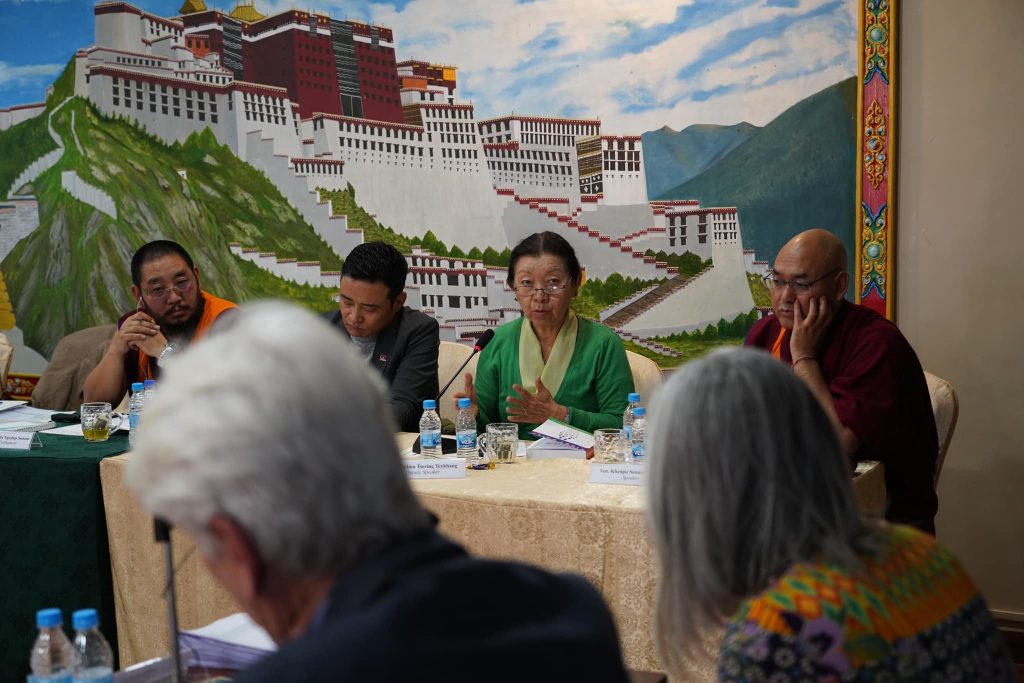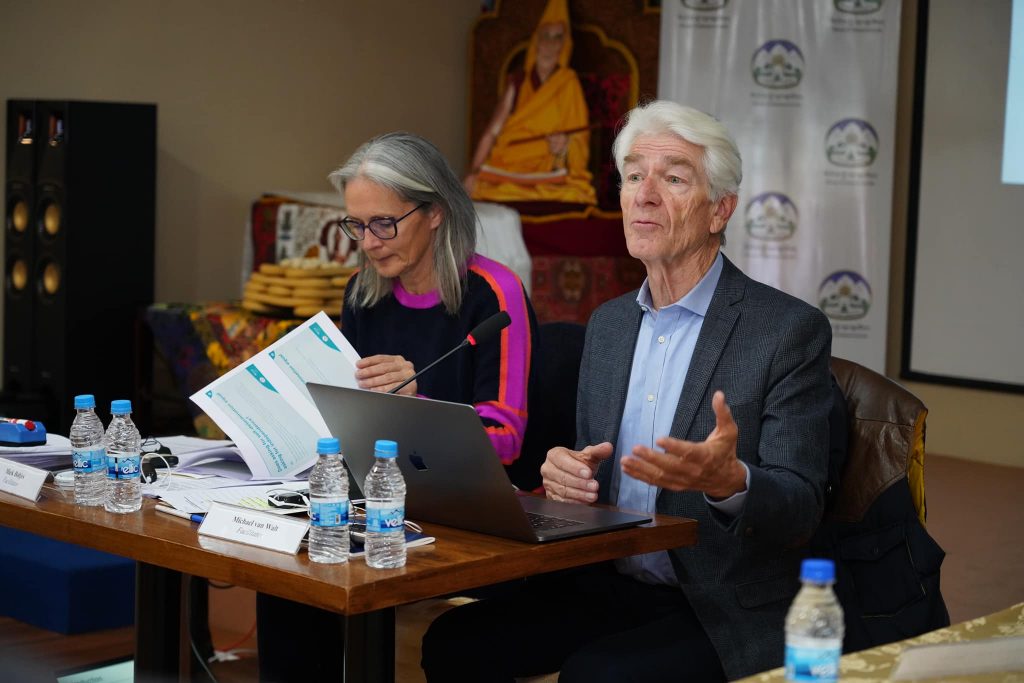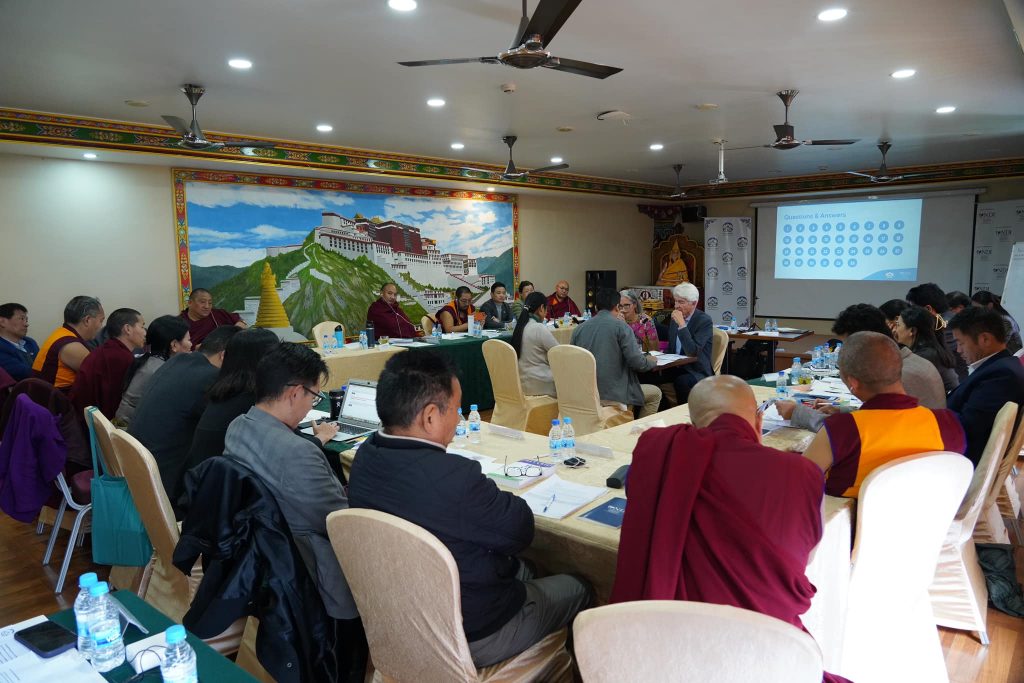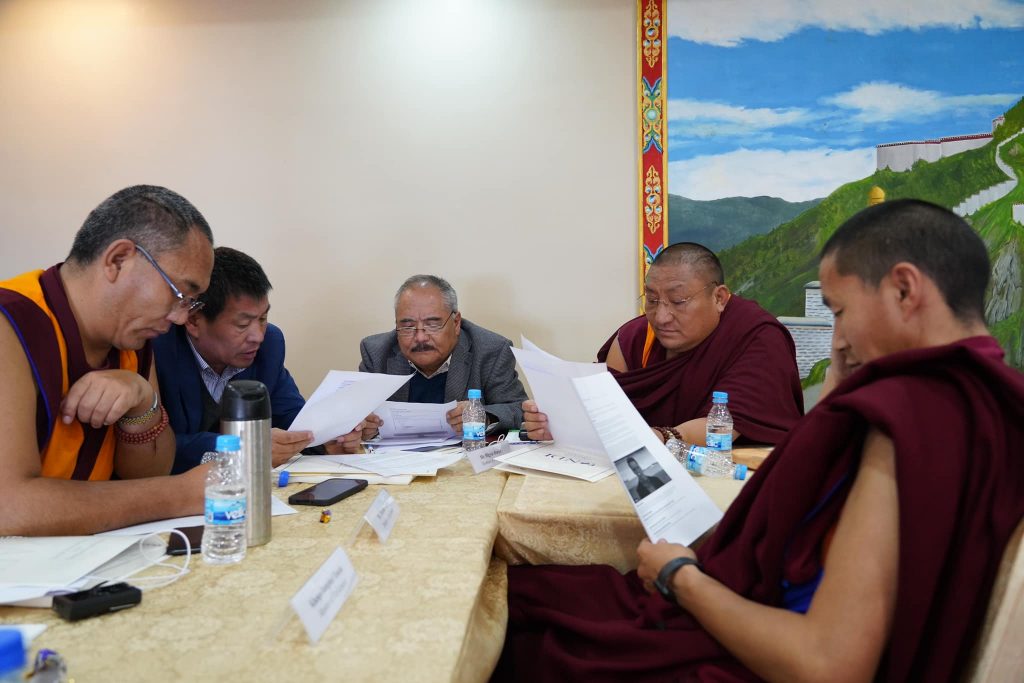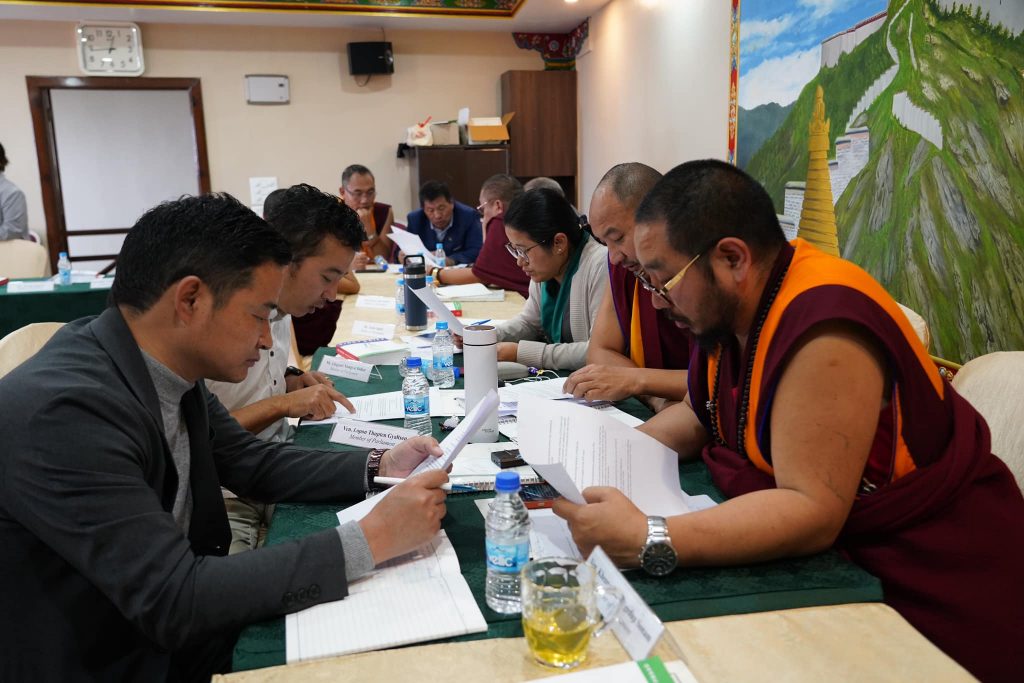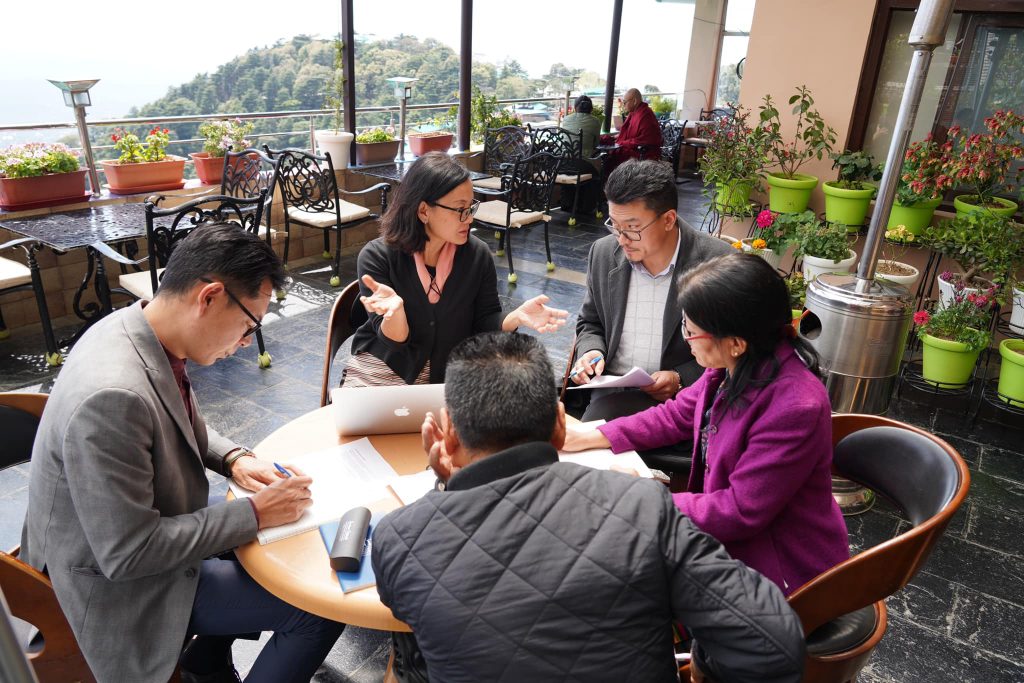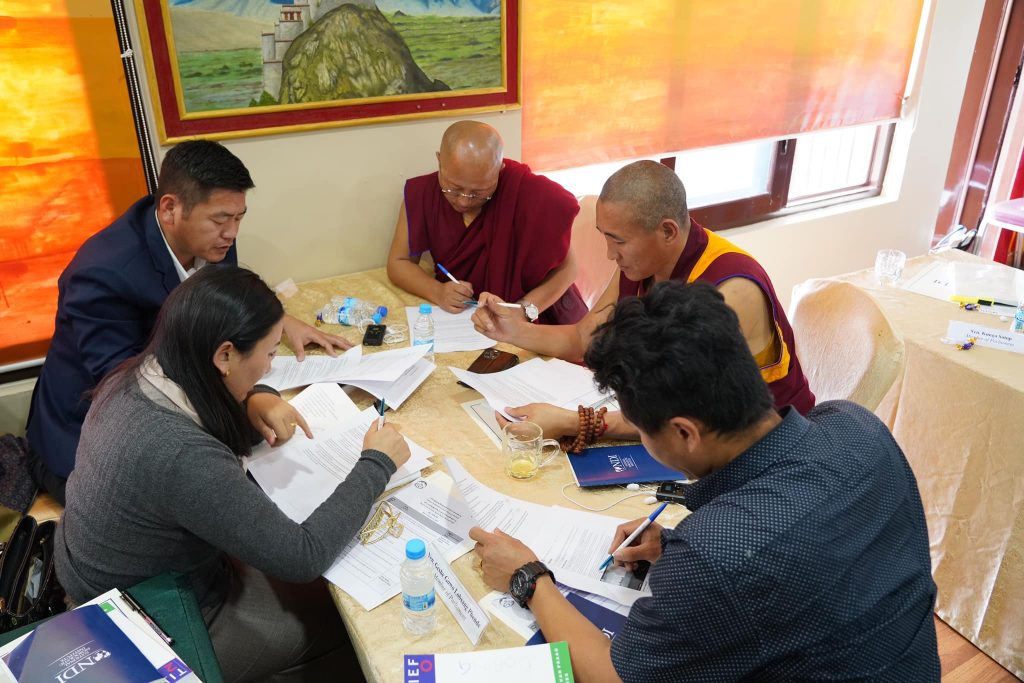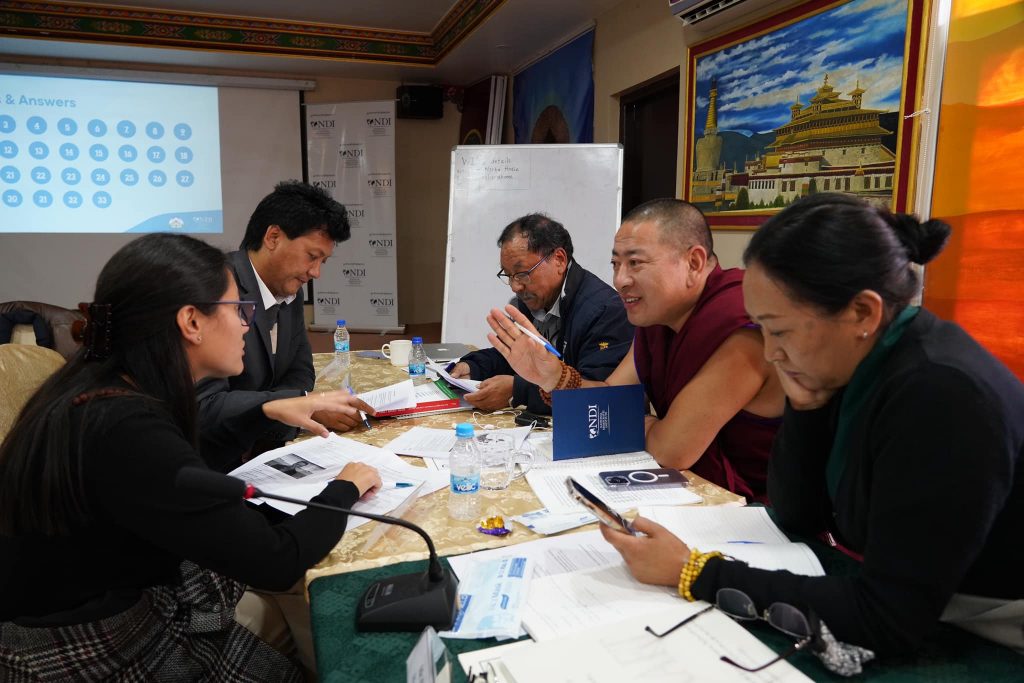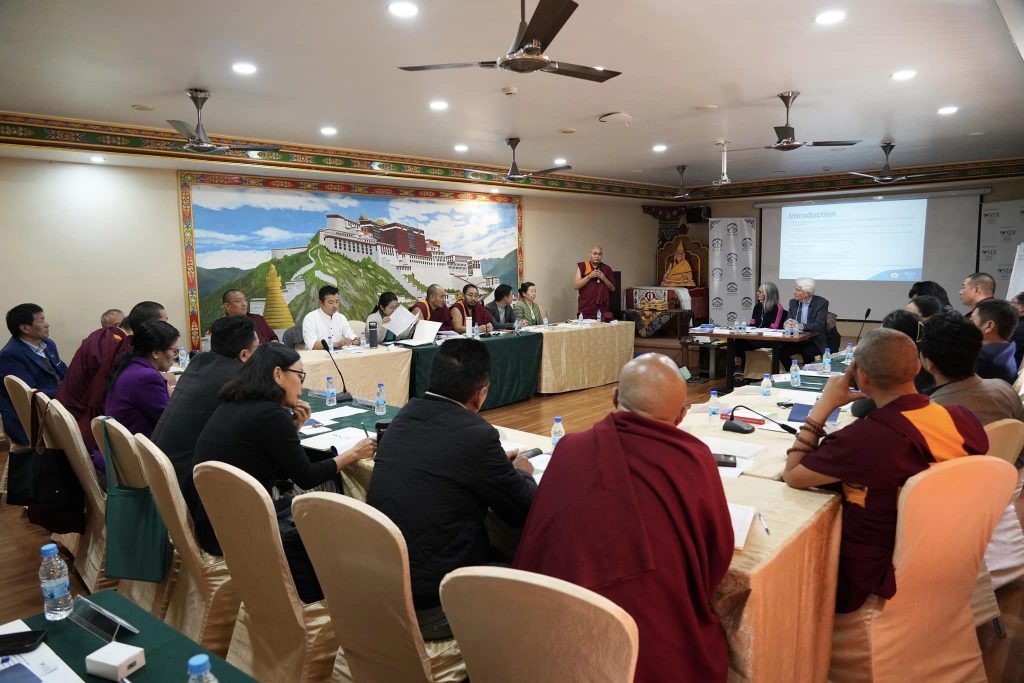
Dharamshala, 27th March 2023: A three-day Tibetan Parliament-in-Exile’s Advocacy Meeting, scheduled to be held from 27th to 29th March 2023, began on 27th March at McLeodGanj in Dharamshala.
Welcoming the resource persons Prof. Michael van Walt van Praag, Miek Bolties, and the participating parliamentarians, Speaker of Tibetan Parliament-in-Exile Khenpo Sonam Tenphel encouraged parliamentarians to take active participation and advised them to consolidate their effort for constructive discussions in a meeting.
The Speaker highlighted the significance of advocacy in strengthening the support for the Tibetan cause, especially considering the pivotal roles history, political status, and international law played in the whole advocacy process. He also emphasized the significance on the usage of proper terminology considering the distinct implication it can bring during the advocacy campaigns.
He then introduced Prof. Michael van Walt van Praag, the writer of the book- Tibet brief 20/20, who have drafted many of the official documents of Central Tibetan Administration and Tibetan Parliament-in-Exile, including the Declarations of many of the previous World Parliamentarians’ Conventions on Tibet (WPCTs). Professor is one of the Legal Advisors to the Office of His Holiness the Dalai Lama and the Central Tibetan Administration on Tibetan issue and is an expert especially on the Middle Way Approach (MWA).
Discussing how Tibet advocacy should be grounded in a common understanding of the international legal status of Tibet and the nature of the Sino-Tibetan conflict, the first day of the advocacy meeting covered topics including Shifting the paradigm: using the strength of Tibet’s international legal status to advance your advocacy goals, why history matters, and key things to know about Tibet’s history.
The meeting also discussed how to put advocacy skills in practice by implementing the paradigm shift and interacted in detail on the significance of history in advocacy with the changing political scenario.
Parliamentarians shared their views and raised questions during the meeting and took active participation while putting their advocacy skills in practice.
